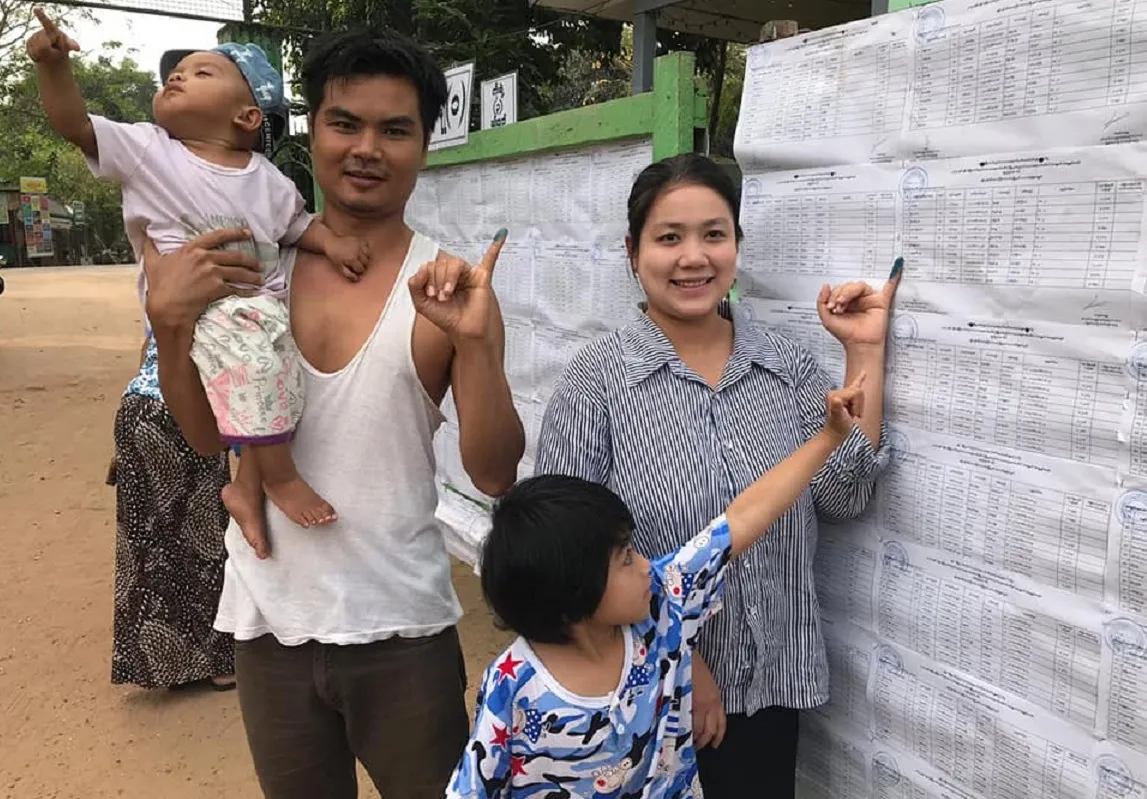International IDEA Myanmar Supports Universal Suffrage in Yangon City Municipal Elections

Myanmar held credible national elections in 2015 and has followed up with well-run by-elections in 2017 and 2018. But despite these achievements at the national and state/region level, Myanmar has never held a municipal election with universal suffrage. Until 31 March that is. While the 2014 Yangon municipal election allowed only one vote per household, this year’s Yangon City Development Council (YCDC) elections allowed anyone over the age of 18 and who had resided at least one year in Yangon to vote.
The municipal government, which is a mixture of elected and appointed positions, also saw the balance tipped in favor of elected positions as they increased with respect to appointed positions. International IDEA Myanmar was the only foreign organization to provide technical assistance throughout this significant election. International IDEA’s embedded team ensured a strong foundation for the YCDC’s future electoral preparations by drafting observer accreditation procedures and working guidelines for the Township and Ward/Village-tract sub-commissions, and training polling station staff. The team also emphasized the use of indelible ink to deter voter fraud, set up an election results announcement center, and produced public information materials for voter outreach. Overall, this year’s by-elections were credible and well-run.
Despite this technical success and the significance of this year’s election media zeroed in on low voter-turnout. When compared to voter turnout at the national level (69 per cent), the 14.77 per cent voter participation rate of this municipal election is clearly an issue that needs to be addressed. We believe the 10-week timeframe between the elections being called and being held had the greatest impact on voter turnout. Despite a concerted effort by the YCDC, International IDEA, and civil society organizations, there was very little time for the YCDC to conduct voter education and outreach to a population that had mostly never voted in a municipal election. Even with support from civil society organizations, many potential voters were uninformed about the election or its potential impact on their daily lives. The tight timeframe also meant that YCDC had to rush to put together the voter list, impacting the number of eligible voters. Even with these difficulties voter turnout was only slightly lower than local elections in more stable democracies like the US and Canada.[1]
A generally smooth election with universal suffrage spanning 2,879 polling stations across 33 townships and 614 ward/village tract sub-commissions is an achievement. The lessons from the Yangon elections could serve as a model for future elections in areas like Mandalay Region. Furthermore, the enthusiastic online support displayed for youth candidates suggests that Yangon youth will be influential in future elections.
International IDEA has forwarded preliminary recommendations to the YCDC, including updating training methods; revamping the complaints and appeals process; revising the legal framework, such as allowing for ballots to be deemed valid as long as the intention of the voter is clear; and providing stronger, more comprehensive voter outreach and education. The Chief Minister and YCDC Commission Chairman offered special thanks to International IDEA for their support developing working guidelines for sub-commissions at the Township and Ward levels. International IDEA will reconvene with the YCDC at a post-election review in July 2019 to discuss the full set of recommendations in detail.
International IDEA’s election activities are run by the STEP Programme, which is funded by the European Union.
[1]In the United States, widely considered a healthy democracy, 10 of its 30 most populous cities had an average voter turnout of 15 per cent in their most recent elections (per 2016 data).




